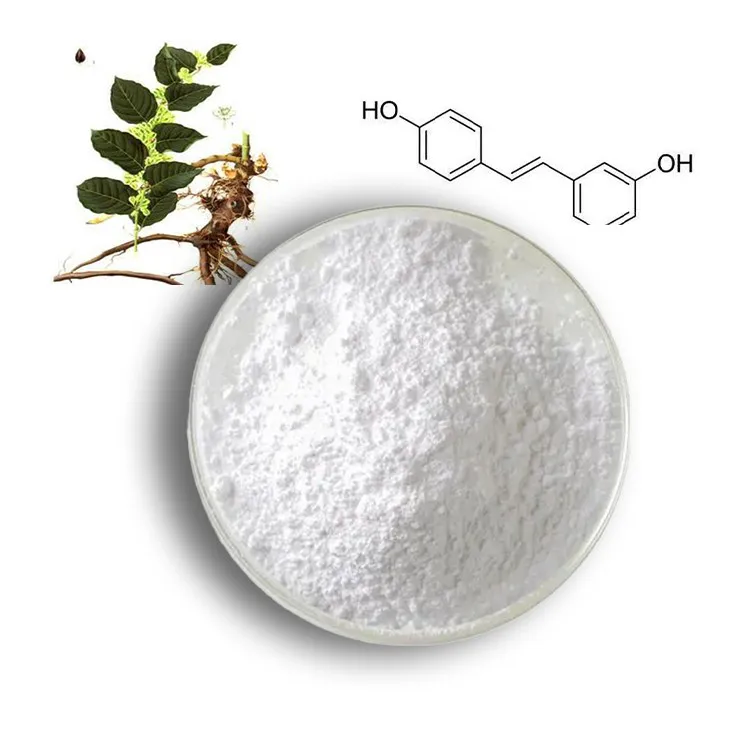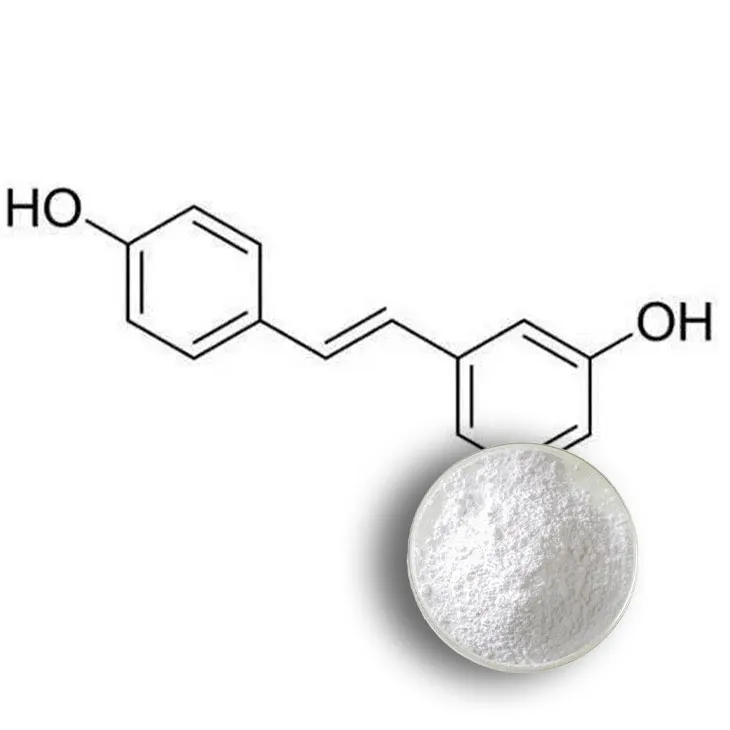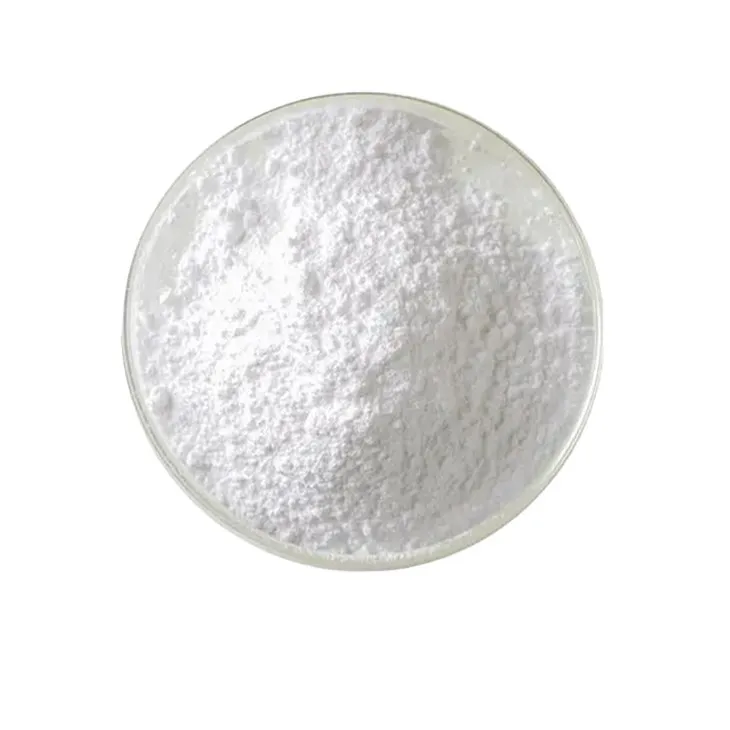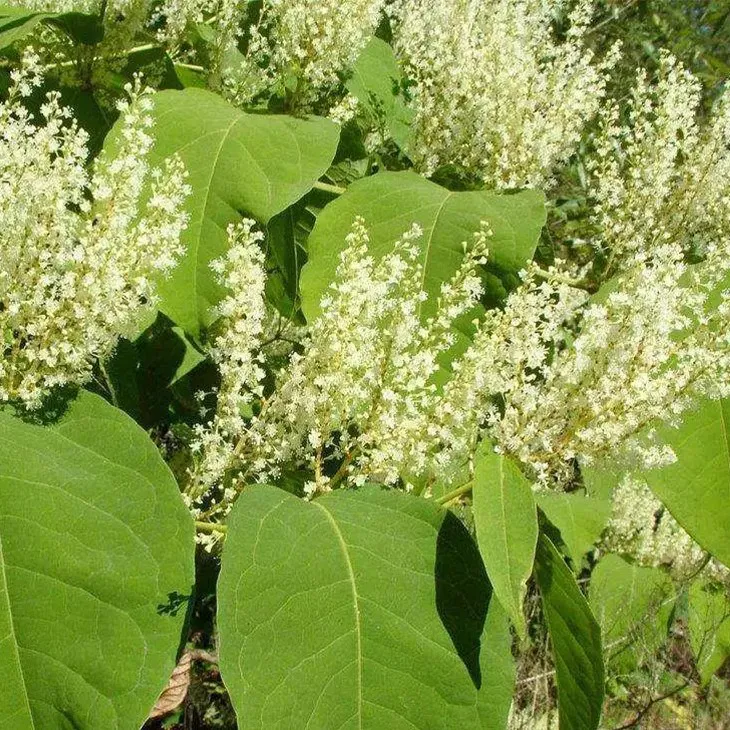- 0086-571-85302990
- sales@greenskybio.com
Best Answers to 7 Key Questions about Resveratrol Extract.
2024-12-21

1. What is Resveratrol extract?
Resveratrol extract is a compound that has gained significant attention in recent years. It is a natural phytoalexin, which means it is produced by plants as a defense mechanism against various stresses such as fungal infections and environmental factors. Resveratrol is found in several plants, but it is most notably present in grapes, especially in the skins and seeds. It also exists in other fruits like berries, peanuts, and some medicinal plants.
Chemically, resveratrol is a stilbene, specifically a 3,5,4' - trihydroxy - stilbene. Its chemical structure gives it certain properties that are of great interest in the fields of health, cosmetics, and food.

2. What are the Chemical Properties of Resveratrol extract?
Antioxidant Properties: One of the most important chemical properties of resveratrol is its antioxidant capacity. It can scavenge free radicals in the body. Free radicals are unstable molecules that can cause damage to cells, DNA, and proteins. Resveratrol donates hydrogen atoms to these free radicals, thereby neutralizing them and preventing oxidative damage. This antioxidant activity is comparable to other well - known antioxidants like vitamin C and E.
Stability: Resveratrol is relatively stable under certain conditions. However, it can be affected by factors such as light, heat, and pH. For example, in acidic conditions, it may be more stable compared to alkaline conditions. In food and supplement applications, understanding its stability is crucial for maintaining its efficacy during processing, storage, and consumption.
Solubility: Resveratrol has limited solubility in water but is more soluble in organic solvents such as ethanol and DMSO. This solubility characteristic affects its formulation in different products. In the development of dietary supplements or cosmetic products, formulators need to consider ways to improve its solubility to ensure proper absorption and effectiveness.

3. What are the Health Benefits of Resveratrol Extract?
Cardiovascular Health
Resveratrol may have positive effects on the cardiovascular system. It has been shown to help reduce inflammation in blood vessels, which is a key factor in the development of atherosclerosis. By reducing inflammation, it can potentially lower the risk of heart disease. Additionally, resveratrol may also have an impact on blood pressure regulation. Some studies suggest that it can help relax blood vessels, leading to a reduction in blood pressure levels.
Anti - Aging
Its antioxidant properties play a significant role in its potential anti - aging effects. By combating free radicals, resveratrol can help protect cells from damage that accumulates over time. This may lead to a reduction in the appearance of wrinkles, improvement in skin elasticity, and overall healthier - looking skin. Moreover, at the cellular level, resveratrol may influence processes such as autophagy, which is the body's way of cleaning up damaged cells and components, contributing to a more youthful cellular environment.
Anti - Cancer Potential
While more research is needed, resveratrol has shown some promising anti - cancer properties in pre - clinical studies. It may be able to interfere with the growth and spread of cancer cells. Resveratrol has been shown to affect various signaling pathways in cancer cells, such as those involved in cell proliferation, apoptosis (programmed cell death), and angiogenesis (the formation of new blood vessels to supply tumors). However, it is important to note that these findings are not yet conclusive, and resveratrol should not be considered a sole treatment for cancer.

4. How is Resveratrol Extract Produced?
There are several methods for producing resveratrol extract. One common method is extraction from natural sources, mainly grapes. The process typically involves crushing the grape skins and seeds, followed by extraction using solvents such as ethanol or methanol. The extract is then purified to obtain a concentrated form of resveratrol.
Another method is through chemical synthesis. However, synthetic resveratrol may have some differences in terms of purity and potential side effects compared to the natural extract. In recent years, there has also been research into biotechnological production of resveratrol, using microorganisms such as yeast. This method has the potential to produce resveratrol in a more sustainable and controlled manner.

5. What are the Applications of Resveratrol Extract in the Food Industry?
Dietary Supplements: Resveratrol extract is widely used in dietary supplements. It is often marketed as a health - promoting ingredient, targeting various health benefits such as those related to cardiovascular health, anti - aging, and immune support. These supplements are available in different forms, including capsules, tablets, and powders.
Functional Foods: In the area of functional foods, resveratrol can be added to certain products. For example, it may be incorporated into juices, yogurts, or energy bars. The addition of resveratrol aims to enhance the health - promoting properties of these foods. However, the challenge in this application is to ensure that the resveratrol remains stable and bioavailable during the processing and storage of the food products.
6. What are the Applications of Resveratrol Extract in the Cosmetic Industry?
Resveratrol has become a popular ingredient in the cosmetic industry. It is used in various skin - care products, such as creams, serums, and masks.
Anti - Aging Skincare: As mentioned earlier, its antioxidant and anti - aging properties make it an ideal ingredient for anti - aging skincare products. It can help reduce the appearance of fine lines and wrinkles, improve skin tone, and enhance skin elasticity. Resveratrol - based skincare products are often targeted at consumers who are interested in maintaining youthful - looking skin.
Anti - Inflammatory Effects on Skin: Resveratrol also has anti - inflammatory properties, which are beneficial for treating skin conditions such as acne, rosacea, and eczema. By reducing inflammation in the skin, it can help soothe irritated skin and promote skin healing.
7. What are the Important Considerations for Using Resveratrol Extract?
Dosage: Determining the appropriate dosage of resveratrol is crucial. While there is no established standard dosage, different studies have used various amounts depending on the intended application. In general, for dietary supplements, dosages typically range from 50 - 500 mg per day. However, it is important to consult a healthcare professional before starting any resveratrol supplementation, especially for those with pre - existing health conditions or those taking medications.
Quality and Purity: The quality and purity of resveratrol extract can vary depending on the source and production method. High - quality resveratrol extracts should be free from contaminants and have a high level of purity. When purchasing resveratrol products, it is advisable to look for products from reputable manufacturers and check for third - party testing or certifications.
Potential Side Effects: Although resveratrol is generally considered safe, some people may experience side effects. These can include mild gastrointestinal issues such as nausea, diarrhea, or stomach discomfort. In addition, resveratrol may interact with certain medications, such as blood - thinning medications. Therefore, it is essential to inform your healthcare provider if you are taking resveratrol supplements or products.
FAQ:
Question 1: What are the main chemical properties of white resveratrol extract?
White resveratrol extract is a polyphenolic compound. It has a relatively simple chemical structure, consisting of two phenolic rings connected by a carbon - carbon double bond. It is soluble in some organic solvents like ethanol and DMSO. It also has antioxidant properties due to the presence of phenolic hydroxyl groups, which can donate electrons to free radicals, thus preventing oxidative damage.
Question 2: How is white resveratrol extract sourced?
White resveratrol extract is mainly sourced from plants. One of the most well - known sources is grapes, especially in the skins and seeds. It can also be found in some berries like blueberries and cranberries, although in smaller amounts. Some plants in the Polygonaceae family also contain resveratrol. In the production process, extraction methods such as solvent extraction are often used to isolate resveratrol from plant materials.
Question 3: What are the potential health benefits of white resveratrol extract?
There are several potential health benefits. Firstly, its antioxidant property may help reduce oxidative stress in the body, which is associated with various chronic diseases. It has been studied for its potential anti - inflammatory effects, which could be beneficial for conditions related to chronic inflammation. There are also some studies suggesting it may have cardioprotective effects, such as improving blood lipid profiles and reducing platelet aggregation. Additionally, some research indicates it might have anti - cancer properties, although more in - depth research is still needed.
Question 4: How is white resveratrol extract used in the skincare industry?
In the skincare industry, white resveratrol extract is used for its antioxidant and anti - aging properties. It can help protect the skin from damage caused by free radicals, which are one of the main causes of skin aging. It may also have anti - inflammatory effects on the skin, which can be beneficial for conditions like acne and eczema. Some skincare products use resveratrol to improve skin tone and texture, as well as to enhance the overall health and appearance of the skin.
Question 5: Are there any side effects or precautions when using white resveratrol extract?
While white resveratrol extract is generally considered safe when used in appropriate amounts, there are some considerations. High - dose supplementation may cause some side effects such as gastrointestinal discomfort, including nausea and diarrhea. Also, pregnant and breastfeeding women should be cautious when using resveratrol - containing products as there is not enough evidence to confirm its safety in these populations. People taking certain medications, especially blood - thinning drugs, should consult a doctor before using resveratrol, as it may interact with these medications.
Related literature
- The Chemical and Biological Properties of Resveratrol"
- "Resveratrol: Sources, Bioavailability and Potential Health Benefits"
- "Applications of Resveratrol in the Skincare Industry: A Review"
- ▶ Hesperidin
- ▶ citrus bioflavonoids
- ▶ plant extract
- ▶ lycopene
- ▶ Diosmin
- ▶ Grape seed extract
- ▶ Sea buckthorn Juice Powder
- ▶ Beetroot powder
- ▶ Hops Extract
- ▶ Artichoke Extract
- ▶ Reishi mushroom extract
- ▶ Astaxanthin
- ▶ Green Tea Extract
- ▶ Curcumin Extract
- ▶ Horse Chestnut Extract
- ▶ Other Problems
- ▶ Boswellia Serrata Extract
- ▶ Resveratrol Extract
- ▶ Marigold Extract
- ▶ Grape Leaf Extract
- ▶ blog3
- ▶ blog4
- ▶ blog5
-
Seven Trends of Nettle Leaf Extracts.
2024-12-21
-
Certified Organic Calendula Extract Set.
2024-12-21
-
Curcumin Extract
2024-12-21
-
Europen Bilberry Extract
2024-12-21
-
Bitter Melon Extract
2024-12-21
-
Nettle Root Extract
2024-12-21
-
Almond Extract Powder
2024-12-21
-
Carrageenan Extract Powder
2024-12-21
-
Artichoke Extract
2024-12-21
-
Sea buckthorn Juice Powder
2024-12-21
-
Black Pepper Extract
2024-12-21
-
White Peony Extract
2024-12-21





















